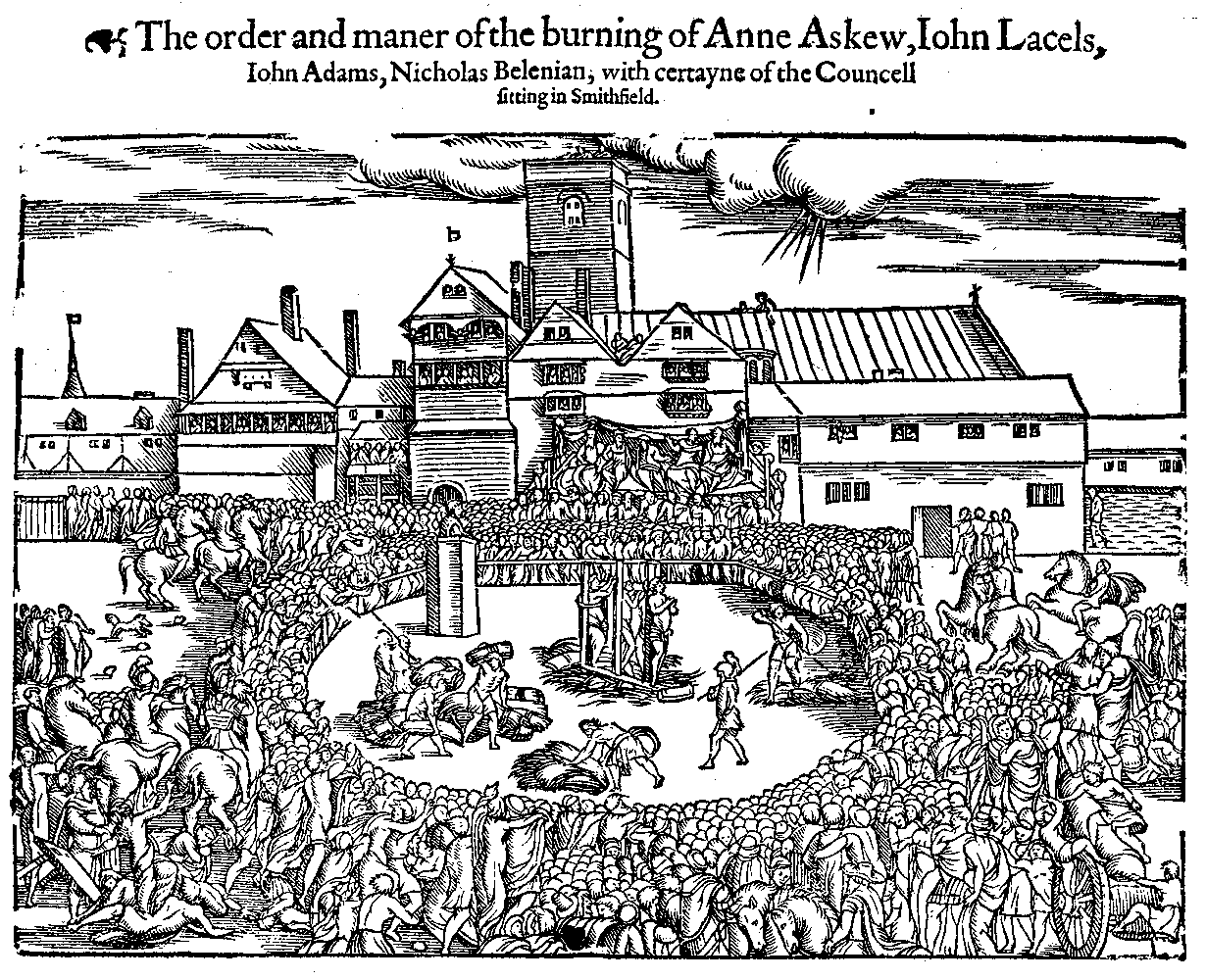


THE MOST PLEASANT SURPRISE for me while writing this book, was the discovery of Anne Askew. She doesn't have the historical weight of the larger names of the Reformation, at least by traditional observance, but she stood close enough to center stage for me, and earned a place of honor, not only on the pages of my book, but in my heart of heart, as Hamlet might have said it.
Known by many as “the Faire Gospeller,” Anne Askew was a witty, well-informed, attractive, independent modern woman in a male-dominated early modern world. They didn’t know what to make of her. Cruelly tormented, then burned at the stake at twenty-five, her ordeal exposes a pitiless Rome in ways others do not.
Born Anne Ascough (Askewe) in Stallingborough, Lincolnshire in 1520, she was married against her will at fifeen to Thomas Kyme, a man betrothed to her sister Elizabeth (who died). Mr. Kyme, however, lost patience with his young wife’s Protestant beliefs and eventually put her out. Or that is one account. Either way, she left him and went to London and assumed her maiden name. A friend of Queen Katherine (Parr), Henry VIII’s sixth and last wife, Anne began to preach, teach, inquire, enter debate, and exercise the gospel wherever there was opportunity. A contemporary, once her enemy, said Anne Askew “was the devoutest and godliest woman” he ever knew.
A firebrand, a street preacher (women were not allowed in a pulpit), attractive and outspoken, Anne Askew was burned at the stake essentially for not believing in transubstantiation and speaking publicly against it. She was tortured on the rack with such ferocity, bones were separated from their sockets. When they brought her to the scaffold for execution days later she had to be brought in on a chair. And her convictions remained intact. "I would rather die than break my faith," she cried. One of the innovations in GODSPEED, is the presence of memoriam, requiem. Anne Askew inspired this.


Gentle Anne had neither the celebrity nor the intellectual brawn of Martin Luther (few did), but she had pluck, or stomach, as it might have been called in her time. Her mind was her own and they hated her for it. Gentle, attractive, self-possessed, witty, and well-prepared, they were bewitched by her and hated themselves for it. She unnerved them into cruelty. Denied trial, she was tortured then burned alive. They broke her body because they could not break her.
And as for that you call your god, it is a piece of bread: for more proof thereof let it lie in a box for three months and it will be moldy, and so turn to nothing that is good. Wherefore I am persuaded that it is not God.
—THE LATTER EXAMINATION OF THE SERVANT OF GOD, MASTRES ANNE ASKEW
The following is one of those historical curiosities I could not resist. Consisting of words she documented herself, with the added commentary of John Bale, who championed her memory.
Lord Mayor: Thou foolish woman, sayest thou that the priests cannot make the body of Christ?
Anne: I say so, my lord, for I have read that God made man; but that man made God I never yet read, nor, I suppose ever shall read.
Lord Mayor: No, thou foolish woman. After the words of consecration is it not the Lord’s body?
Anne: No, it is but consecrated bread, or sacramental bread.
Lord Mayor: What if a mouse eat it after the consecration? What will become of the mouse? What sayest thou, foolish woman?
Anne: What shall become of it, say you, my lord.
Lord Mayor: I say that that mouse is damned.
Anne: Alas, poor mouse!





14.99


